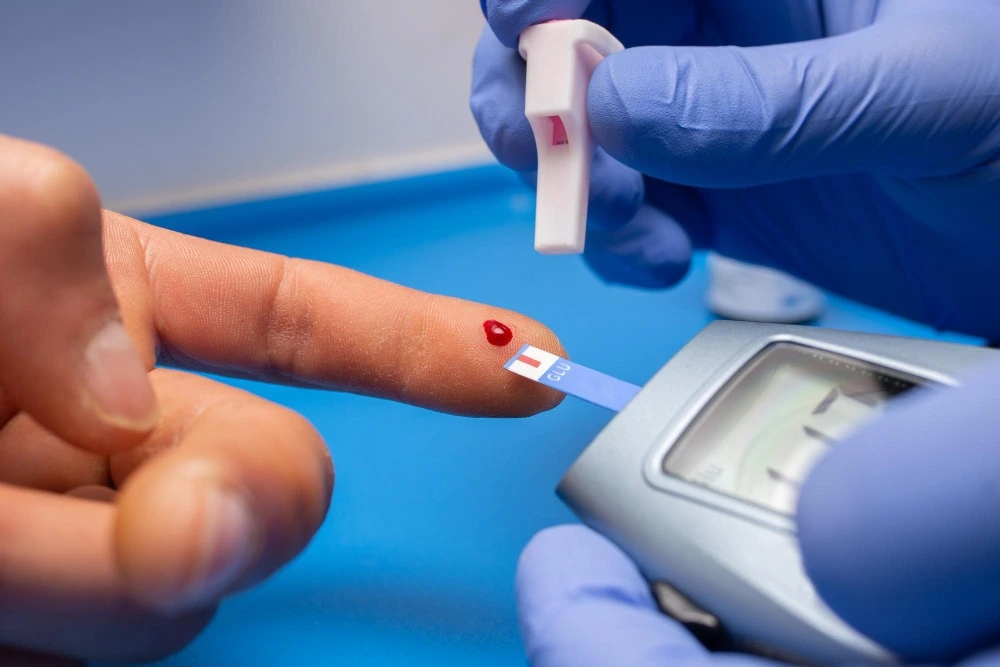Insulin Resistance in Abu Dhabi
Elyzee Hospital is one of the best medical centers in Abu Dhabi specializing in Laboratory & Diagnostics.

Insulin Resistance in Abu Dhabi
Insulin resistance is not a process. Rather a common medical condition in which the cells in the body do not properly react to insulin, which’s a hormone. High levels of blood sugar are often seen as an indication of type 2 diabetes. In this guide we will explore insulin resistance and its effects on health, identify individuals who could benefit from making lifestyle changes and seeking help, discuss the importance of consulting healthcare professionals explain how to prepare for managing insulin resistance, look at different ways to manage it on an ongoing basis talk about possible outcomes and address frequently asked questions.
The benefits of this procedure
While there may not be a protocol for addressing insulin resistance effectively managing this condition offers benefits. It can potentially delay the development of type 2 diabetes, lower the risk of heart disease and improve health and well being. Making lifestyle adjustments such as maintaining a diet, engaging in physical activity and managing weight can greatly influence insulin sensitivity.

The best candidate for this procedure
People who have been diagnosed with insulin resistance or are at risk because of factors such as obesity, lifestyle choices, a family history of diabetes or polycystic ovary syndrome (PCOS) can greatly improve their health by managing their insulin resistance. It is also important for individuals with prediabetes or gestational diabetes to take measures to improve their insulin sensitivity and prevent the development of type 2 diabetes.
Consultation with a healthcare professional and preparation for managing insulin resistance
The initial step in managing insulin resistance is to seek guidance from a healthcare professional, a primary care physician or an endocrinologist. The healthcare provider will carefully review the individual’s background conduct tests and create a personalized plan for management. In order to prepare for dealing with insulin resistance it is important to make lifestyle adjustments, like following a rounded diet that includes wholesome foods incorporating regular physical activity into one’s routine and monitoring blood sugar levels as advised by the healthcare provider.
What’s happening during the management process
Managing insulin resistance primarily involves making sustainable lifestyle changes. This may include:
Dietary Modifications: Incorporating a rounded diet that consists of grains, lean sources of protein, fruits, vegetables and good fats has the potential to regulate blood sugar levels and enhance the body’s responsiveness to insulin.
Physical Activity: Regularly participating in activities like walking or aerobic exercises can effectively reduce blood sugar levels and improve the body’s ability to respond to insulin.
Medications: In situations healthcare providers may suggest the use of medications, like metformin to improve the body’s reaction to insulin and keep blood sugar levels stable.
Monitoring: It is crucial to check your blood sugar levels either through self testing or continuous glucose monitoring. This helps keep track of your progress and make any changes.
After the management process and ongoing care:
Managing insulin resistance requires effort. People need to maintain habits, follow medications if needed and regularly visit their healthcare provider for check ups. The ultimate objective is to prevent or delay the onset of type 2 diabetes and lower the chances of developing complications.
Final Result
Effectively managing insulin resistance can lead to insulin sensitivity and better regulation of blood sugar levels. As a result the risk of developing type 2 diabetes and its associated health complications decreases, ultimately enhancing ones quality of life.
Conclusion
Although there isn’t a protocol”, for addressing insulin resistance it is crucial to manage it through lifestyle adjustments and, in certain instances medication. Identifying the condition of consulting with healthcare experts and implementing lasting changes can greatly enhance insulin sensitivity and overall well being.

FAQ
Certainly! Insulin resistance can indeed be reversed by making some changes to your lifestyle. This includes adopting a diet engaging in physical activity and effectively managing your weight. By intervening you can enhance your body’s sensitivity to insulin and reduce the risk of developing type 2 diabetes.
The role of genetics in influencing a person’s vulnerability to insulin resistance is undeniable. It is equally important to acknowledge the impact that lifestyle choices, including diet and physical activity have on its development and control.
People who have insulin resistance should be cautious about consuming foods, refined carbohydrates and processed foods. It’s important to prioritize a rounded diet that includes plenty of unprocessed foods in order to effectively manage blood sugar levels.
Make An Appointment

